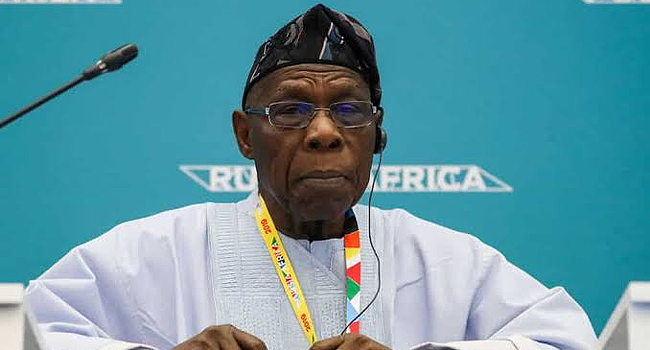On Monday, the Presidency blamed former President Olusegun Obasanjo for the current situation of Nigeria’s democracy.
The Special Adviser to the President on Information and Strategy, Bayo Onanuga, remarked that the country’s existing democracy can be traced back to Obasanjo’s direct contributions as military Head of State from 1976 to 1979 and as civilian President from 1999 to 2007.
“Obasanjo ought to know that he brought this thing into Nigeria. He was the one who made us adopt it in 1979. He must have seen it as expensive and unsuitable when he governed us for eight years and even wanted an extension for another four years.
“So, the way he is sounding, it is like the man is getting wiser after leaving office,” Onanuga said, reacting to Obasanjo’s post-presidential stance.
The Presidency’s response followed comments made by Obasanjo at the high-level consultation on Rethinking Western Liberal Democracy in Africa held at Green Resort Legacy, Olusegun Obasanjo Presidential Library, Abeokuta.
Obasanjo had criticised Western democracy, suggesting it had not delivered good governance and development in Africa.
He called for a reexamination and moderation of democracy to better suit African nations, citing the Western model’s disregard for African history and complexities.
Obasanjo proposed an “Afro democracy” tailored to the continent’s unique needs.
The ex-president said the snag with the liberal democracy was that it was not home-grown and did not take into account African history and multicultural complexities, among other peculiarities.
Picking holes in the Western liberal democracy, Obasanjo described it as a “government of a few people over all the people or population and these few people are representatives of only some of the people and not fully representatives of all the people. Invariably, the majority of the people are wittingly or unwittingly kept out.”
According to him, African countries have no business operating a system of government in which they have no hands in its “definition and design.”
Obasanjo said, “The weakness and failure of liberal democracy as it is practised stem from its history, content and context and practice. Once you move from all the people to a representative of the people, you start to encounter troubles and problems.
“For those who define it as the rule of the majority, should the minority be ignored, neglected and excluded? In short, we have a system of government in which we have no hands to define and design and we continue with it even when we know that it is not working for us.
“Those who brought it to us are now questioning the rightness of their invention, its deliverability and its relevance today without reform. The essence of any system of government is the welfare and well-being of the people, all the people.”
He argued that Nigerians must “interrogate the performance of democracy in the West where it originated from and with us the inheritors of what we are left with by our colonial powers.”
But the Presidency blamed the former leader for a poorly copied model during his tenure as Head of State and, later, President.
It criticised Obasanjo for not advocating a better system despite his current views saying, “If he believes in what he is saying now, he ought to be an advocate of the need to go back to the parliamentary system.”
Onanuga added, “We were practicing the parliamentary democracy the British left for us. Then, the military struck in 1966. And when we were going to return to democracy, instead of going back to what we were practicing before, parliamentary democracy, which was not expensive, it was this same Obasanjo who accepted the recommendation of the constitutional assembly at that time that recommended this American-style democracy.”
The Presidency criticised Obasanjo’s implementation of the presidential system, saying, “Obasanjo also knew that he copied this presidential system very wrongly. He copied the form and structure. But he didn’t copy the spirit of it.”
“Something that should have been under him in 1999 to 2007, he even made attempts to modify the constitution,” Onanuga remarked.



